The day began with a warm welcome from our City & Guilds Vice-Chair and City & Guilds Foundation Chair, Dick Palmer FCGI, followed by remarks from Sir Andrew Parmley, representing the Lord Mayor. Their reflections on the historic ties between City & Guilds and the City of London set the tone for an afternoon rooted in legacy and forward-thinking.
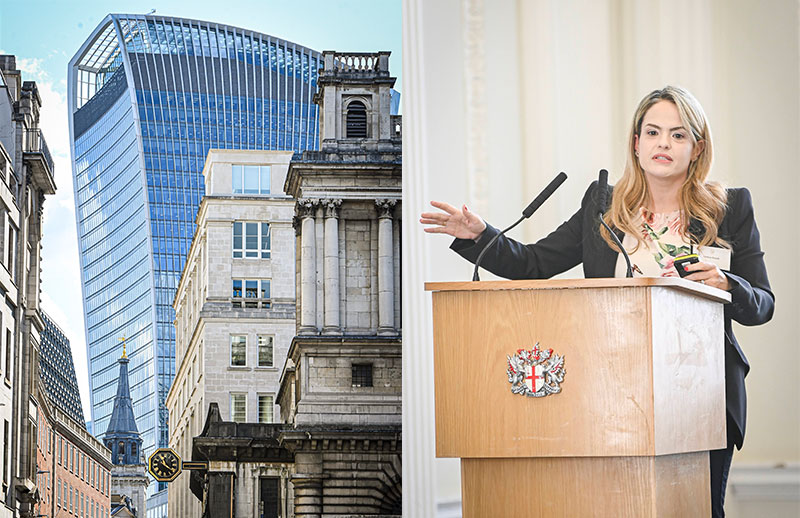
Our keynote speaker, Prof Dr Larissa Suzuki, captivated the room with her talk on “AI will benefit society; how do we prepare for it?” — exploring the transformative potential of AI in smart cities and the importance of inclusive education and training. Larissa opened by sharing that only 12% of AI products make it to market, so there is so much that we don’t see. Larissa reminded us that machines don’t get tired, humans do and tools are always better at doing something than we are – whether that’s a bucket that carries water or a calculator which can do complex sums. And so we need to use AI as a tool – get it to do the ‘doing’ whilst we do the ‘deciding.’
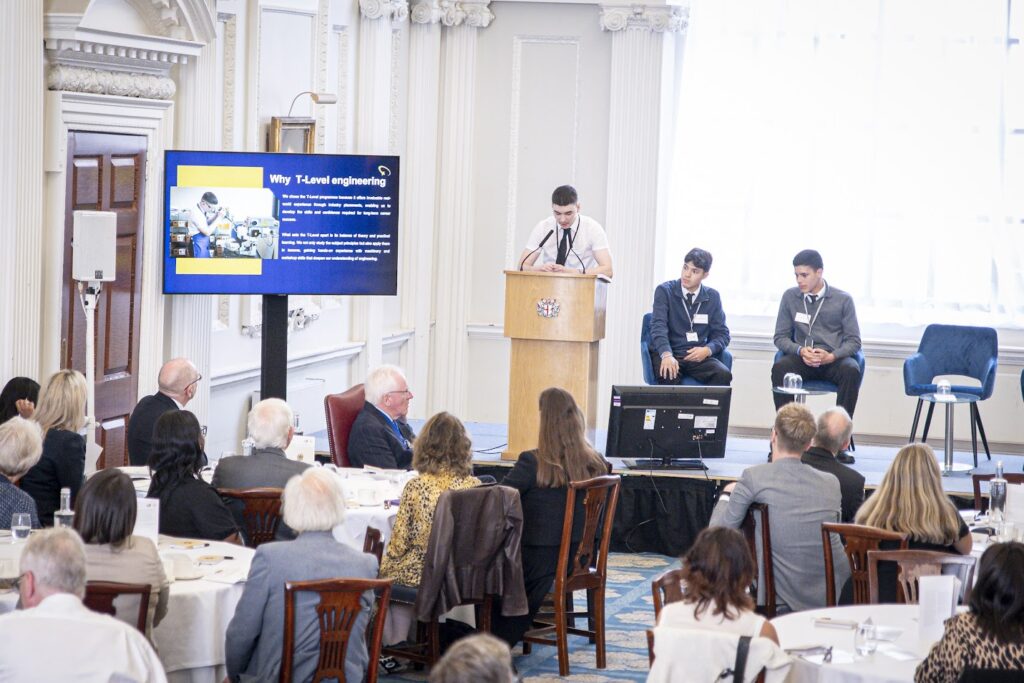
A highlight of the event was the presentation by Halley Academy’s Engineering T Level students, showcasing the talent and ambition of the next generation. Students were able to share some of the projects they have worked on including a robot lamp which they produced using skills such as welding, wasting and forming metals; and their most recent project of making a mechanical crane which will pull a variety of objects and focus on how to use more complex machinery in engineering alongside AI.
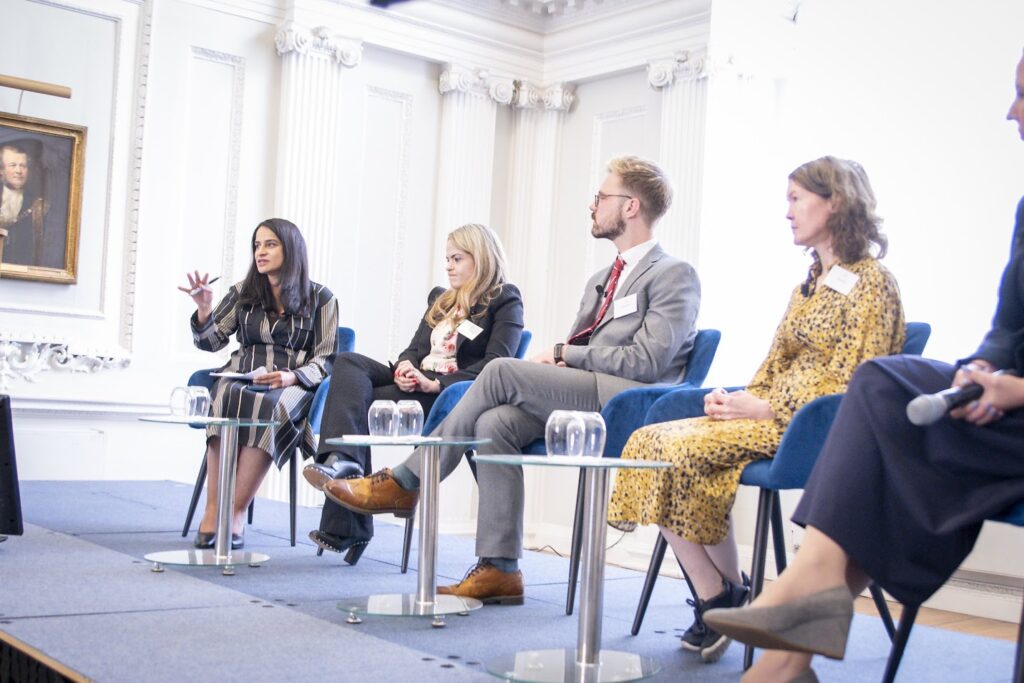
Their contributions sparked rich conversations during the panel session, hosted by Faiza Khan MBE, featuring insights from Rachel Free, James Cowie, and Deborah Morgan. Each of our panellists talked about the challenges of using AI. Prof Dr Larissa talked about how we really make sure that AI is accessible and affordable, and reaching people in need. For example, driverless cars are great – but they would be even better if they were prioritised and accessible for people who cannot use ‘normal’ cars with ease. James Cowie mentioned his own personal thoughts that the UK education system needs to better embed and use AI, learning from other countries like Germany and China where AI is empowering learning. Deborah talked about the importance of reverse mentoring and making sure we can learn from the users of AI, like the students in the room. And finally, Rachel was able to remind us all the importance of not trusting everything you read using AI tools and always check your answer.
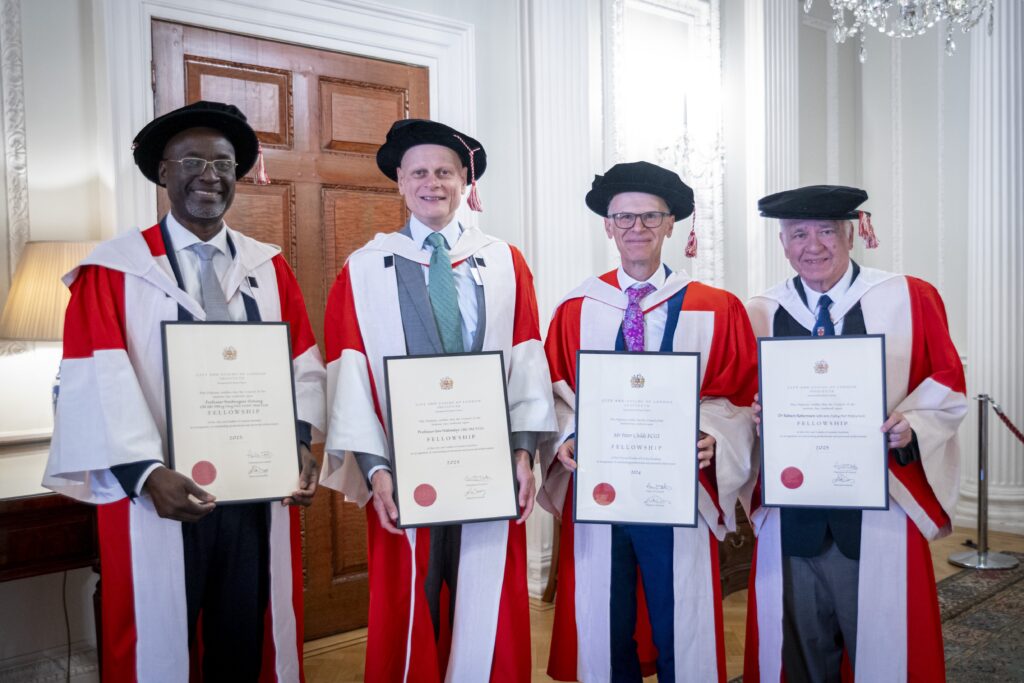
The afternoon continued with the prestigious Fellowship Diploma presentations, which honoured four individuals who have made outstanding contributions to technical education and training — including senior figures from Imperial College London.
- Robert Robertson was until recently the President and CEO of the University College of the Cayman Islands. For 50 years UCCI has been the top choice for higher education, degrees and workforce training in the Cayman Islands. He has developed evidenced based initiatives in the Caribbean to address national and regional skills gaps including developing industry workplace ready skills through the prison system, creating a dual enrolment initiative and implementing a national digital literacy programme. Introducing City & Guilds qualifications, Bob has implemented certified solar panel training and similar industry recognized credentials to promote workforce readiness to drive sustainability and resilience.
- Professor Peter Childs is the Professorial Lead of Design Engineering and Professor at Large in Innovation Design Engineering, the joint venture between Imperial College and the Royal College of Art. He was the founding head of the Dyson School of Design Engineering at Imperial taking it from initial concepts to involving 900 students and staff. He has published over 250 refereed papers and is a major contributor to major global conferences. From a conversation triggered by a cold draft through a pub floor, in 2012 he led the creation of QBot Ltd, a spin out company providing the construction sector with sustainable and scalable robotic solutions. There services replace uncomfortable manual roles with robotic operations and open up new employment opportunities in the construction sector. QBot Ltd was a awarded the Queen’s Award for Enterprise and Innovation in 2020.To date, over 5000 houses have been insulated using QBot technology, saving CO2 equivalent to 3000 transatlantic flights.
- Professor Washington Ochieng OBE is the Head of Department for Civil and Environmental Engineering at Imperial College London. He is a Trustee of the Science Museum Group and President of the Royal Institute of Navigation whose remit is to advance the art, science and practice of navigation on, in or under land, sea, air and space. Professor Ochieng’s focus is to link research to practical application in a useful, relevant and exemplary way – bringing together academic excellence and practical application as evidenced in his contribution to intelligent traffic control systems that regulate traffic in congested streets, railway systems, air traffic and maritime management and including across London! He is committed to developing talent, building capacity and building sustainable societal impact. In 2024 Professor Ochieng was made a CBE.
- Professor Ian Walmsley CBE is the second Provost of Imperial College and is Chair of Experiment al Physics. He leads the academic mission of the College overseeing research, education, innovation and translation activities ensuring that these are internationally leading and deliver benefit to society. At Imperial he has championed a values-led culture and advanced diversity and inclusivity through a number of initiatives including the visiting professor’s scheme and the Imperial Together campaign. Professor Walmsley was made CBE in 2024 for his services to science and quantum technologies.
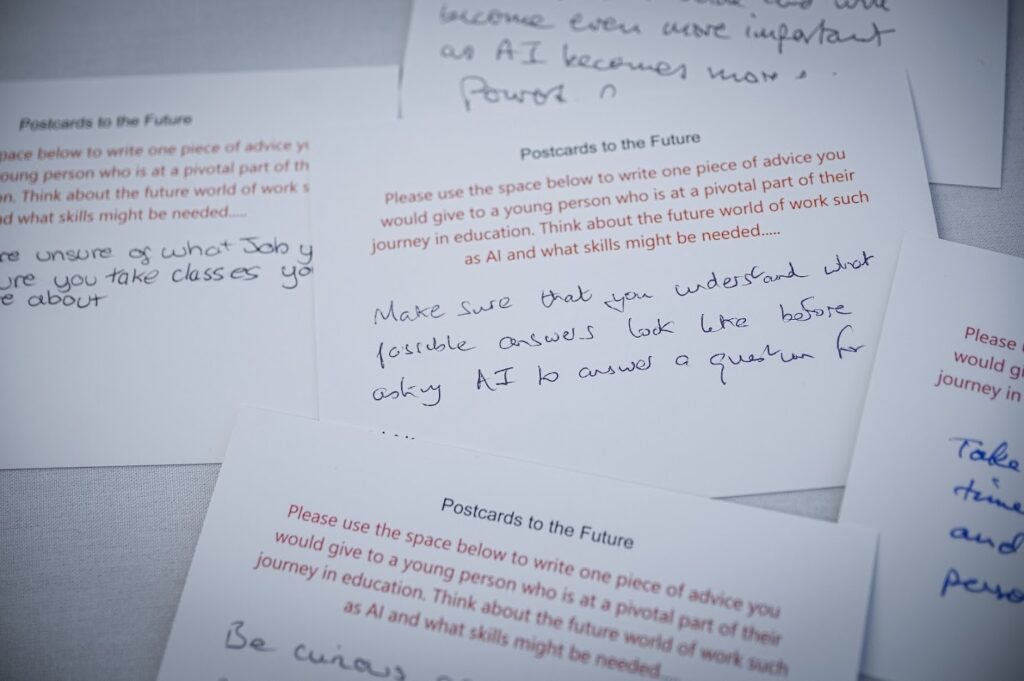
After the Fellowship Diploma presentations guests then took part in table discussions, exploring the ethical and practical implications of AI, and writing “Postcards to the Future” — messages of hope and advice for the next generation. These will be proudly displayed in Halley Academy Sixth Form.
Closing remarks from Faiza Khan brought the day to a thoughtful close, followed by tea, coffee, and networking. We’re grateful to everyone who joined us and contributed to such a dynamic and engaging event.
Photos from the day can be found below, and videos from the event will be shared shortly.
To find out more about our Fellowship programme click here.
See all photos from the event here.
Photographs courtesy of Greg Allen Photography https://www.gregallenphoto.com/